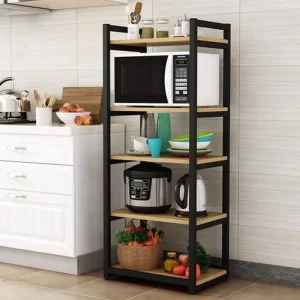
Are Baseboard Heaters Safe?
Baseboard heaters are a classic, popular choice for homeowners looking to keep their homes warm during the cold winter months. However, there is some growing concern about whether these heaters are safe to use, especially in the face of newer, more effective forms of heating a home. In this article, we will discuss whether baseboard heaters are safe and explore a more efficient and safer alternative: heat pumps.
Baseboard Heaters
Baseboard heaters are electric or gas heaters that are installed, as the name suggests, along the baseboards of a room. They work by heating the air, which then naturally rises and circulates throughout the room. While these heaters provide warmth and comfort, they can also pose rare but significant safety risks if not used properly.
One of the primary concerns when it comes to baseboard heaters is the potential risk of fire. Baseboard heaters can become extremely hot, and if they come into contact with flammable objects, such as curtains or furniture, there’s a risk of a fire starting. Additionally, if the heater is inset too close to the wall, it can create a fire hazard.
Another concern with baseboard heaters is the risk of electrical shock. If the heater is damaged or not installed properly, it can create an electrical hazard, which would be dangerous and potentially fatal. Both electric shock and fire risks are increased in homes with children, so be sure to watch for play near and around baseboard heaters.
In addition to the safety risks, baseboard heaters can also be inefficient and costly to operate. By the nature of their design, they tend to heat the air closest to them, which leads to hot and cold spots around the room. Additionally, they can be especially expensive to run in larger rooms or homes.
So, Are Baseboard Heaters Safe?
The answer is that it depends on how they are used and maintained. If you choose to install and use baseboard heaters, it is essential to follow the manufacturer’s instructions carefully and ensure that the heater is placed in a safe location away from flammable objects. If you are placing furniture in front of the baseboard heater, you should leave at least six inches to one foot of a clearance. This will reduce the danger of fire while also increasing airflow for the heater, better warming your home.
Additionally, it’s recommended to have the heater inspected regularly to ensure it is functioning properly and not creating any safety hazards. While not a safety hazard in and of itself, infrequent usage of your baseboard heater can lead to an accumulation of dust, which in turn will lead to an unpleasant “burned dust” odor. Vacuuming can help to eliminate this problem.
While baseboard heaters can be a convenient option, there is a more efficient and safer alternative: heat pumps. A heat pump, simply put, is a device that transfers heat from one location to another using electricity as a power source. Unlike a traditional heating system that generates heat in and of itself, a heat pump simply moves that heat around from one place to another.
Heat Pumps
Heat pumps are becoming increasingly popular as a more efficient and environmentally friendly way to heat homes. Compared to traditional heating systems, heat pumps are up to three times more efficient, which means they use less energy and cost less to operate.
Aside from safety, one of the primary benefits of a heat pump is that it provides consistent heating in a room. Unlike baseboard heaters, which can create hot and cold spots, a heat pump distributes warm air evenly throughout the space, creating a comfortable and consistent temperature.
Another benefit of a heat pump is that it can also be used for cooling during the summer months. By reversing the heating process, a heat pump can remove warm air from the room and transfer it outside, leaving only cool, refreshing air inside.
Additionally, heat pumps are much safer than traditional baseboard heaters. Because they do not generate heat, there is no risk of fire or carbon monoxide poisoning. This also means that they operate at a lower temperature, reducing the risk of accidental contact burns.
Heat pumps will reduce or eliminate the need for a humidifier or dehumidifier. While a gas baseboard heater will dry out the air when heating, a heat pump will not have this problem. Similarly, an air-conditioning unit will not remove excess summer moisture, while a heat pump will remove the warm, muggy air altogether.
Purchasing a Heat Pump
When it comes to choosing a heat pump, there are two main types to consider: air-source and ground-source. Both are largely self-explanatory. An air-source heat pump extracts heat from the air and transfers it into your home, while a ground-source heat pump extracts and transfers heat from the ground.
Both types of heat pumps are highly efficient and can provide significant energy savings over traditional heating systems. However, ground-source heat pumps tend to be more expensive to install, though they are also more efficient and can provide better and more consistent heating.
In conclusion, while baseboard heaters can provide warmth and comfort, they also come with safety risks and can be costly to operate. A heat pump is a cheaper, more efficient, and safer alternative that can provide consistent heating and cooling throughout the year. If you are considering installing baseboard heaters, it’s essential to weigh the risks and benefits carefully.
If you think that it is time for a safer, more efficient, and cheaper alternative and you live in the Portland area, consider Entek for all your heat pump needs. They are dedicated to making your home more comfortable, safer, and simpler to operate. They have been providing quality heating and air-conditioning to the greater Portland and Vancouver area for over 75 years and are eager to bring your home into the 21st century.



Average Rating